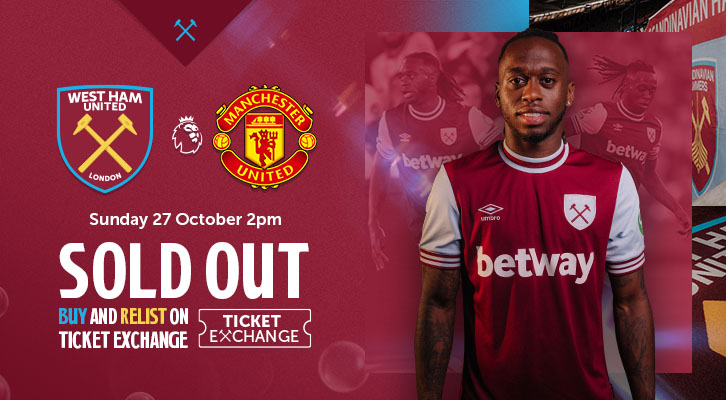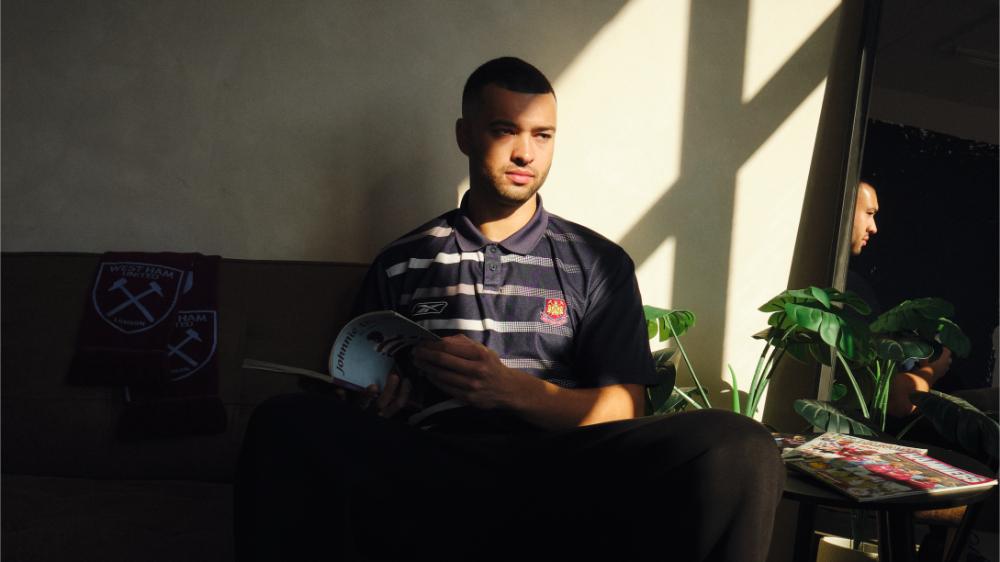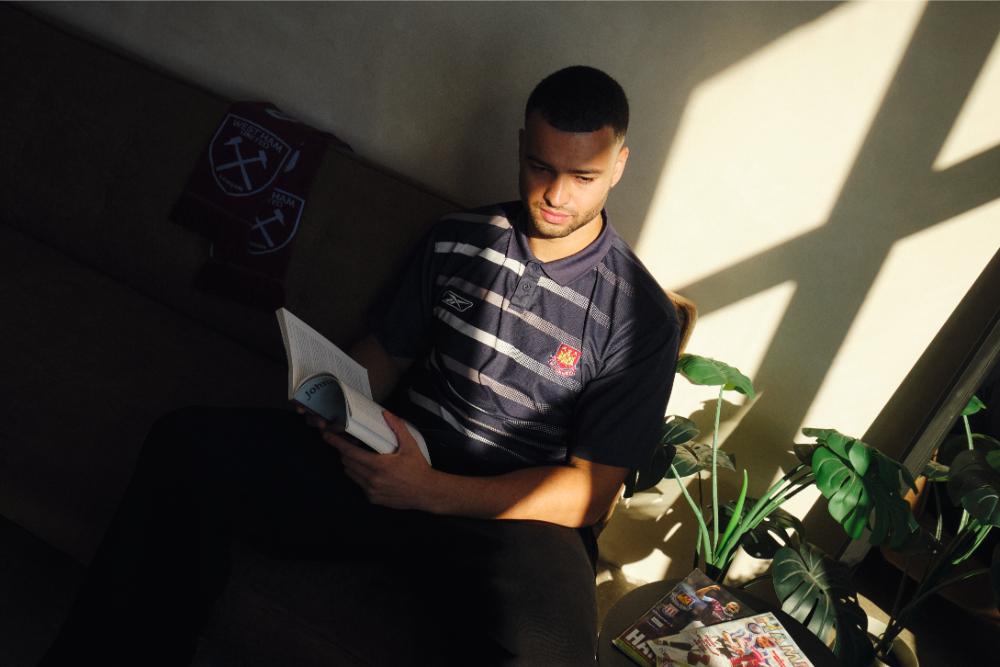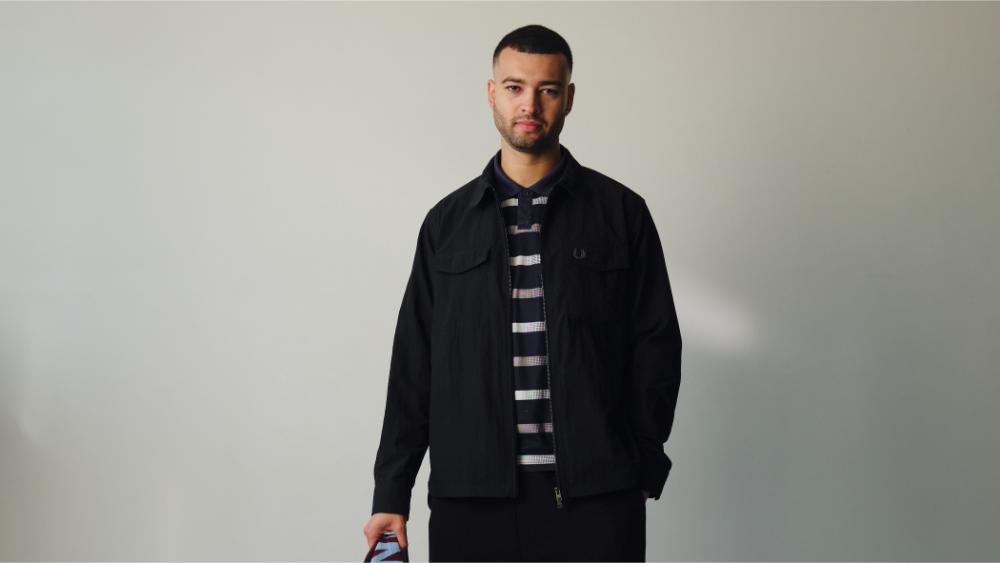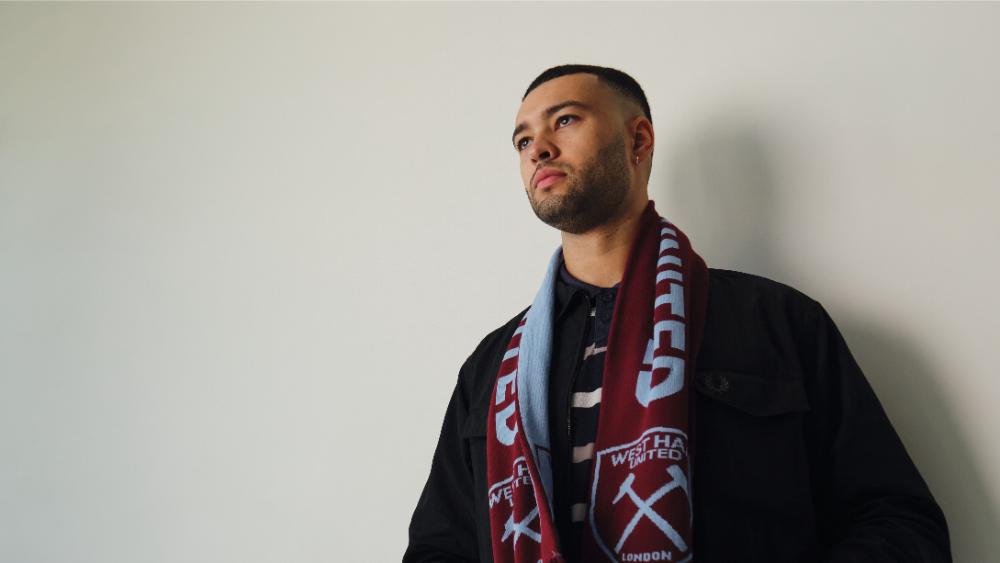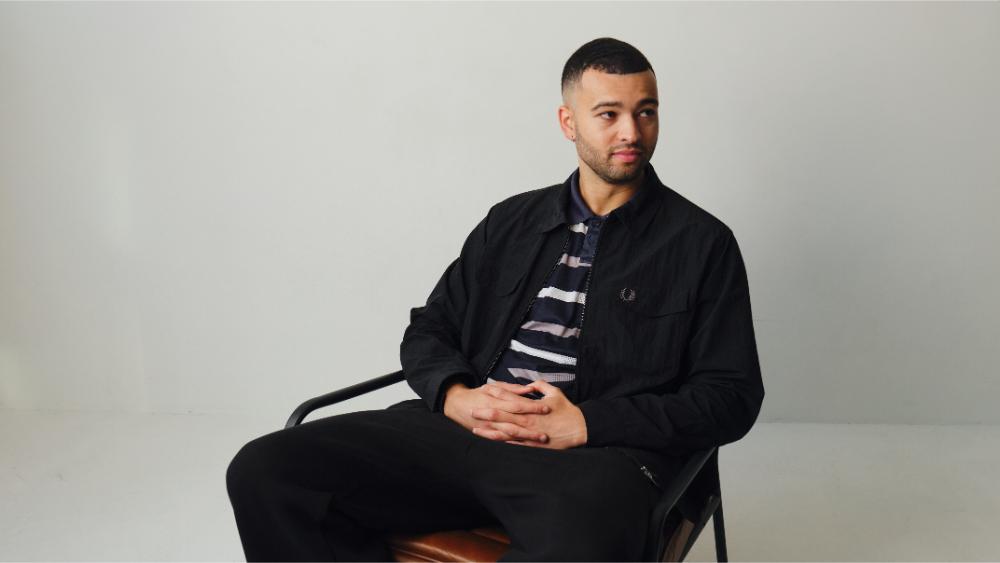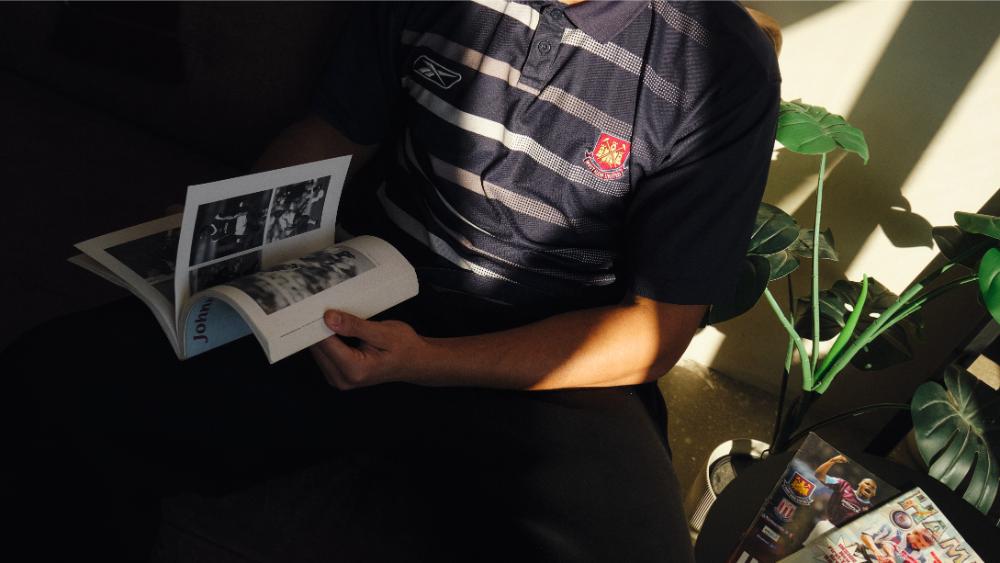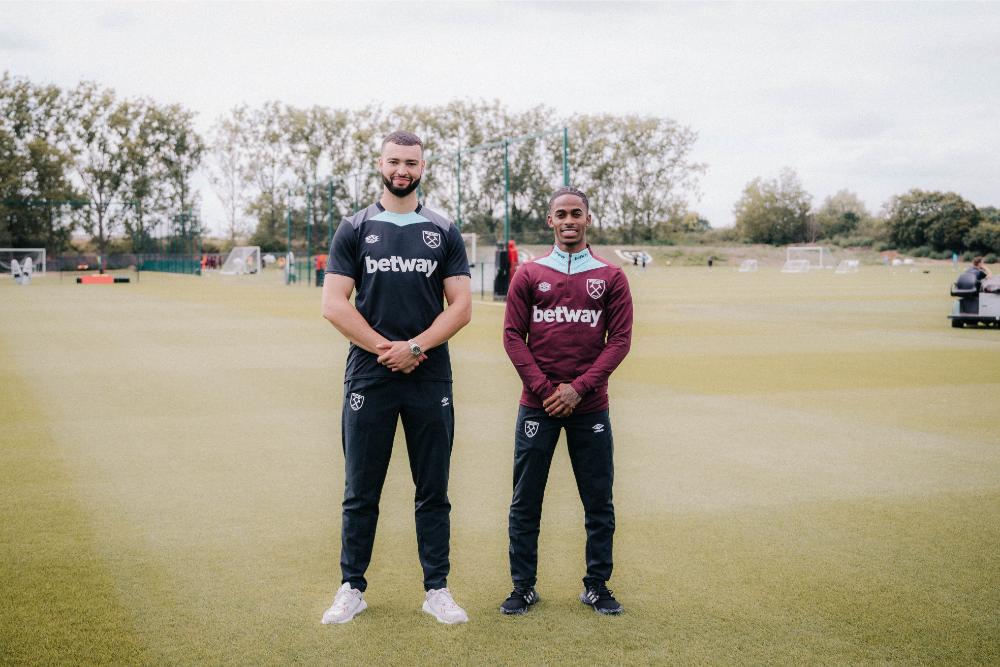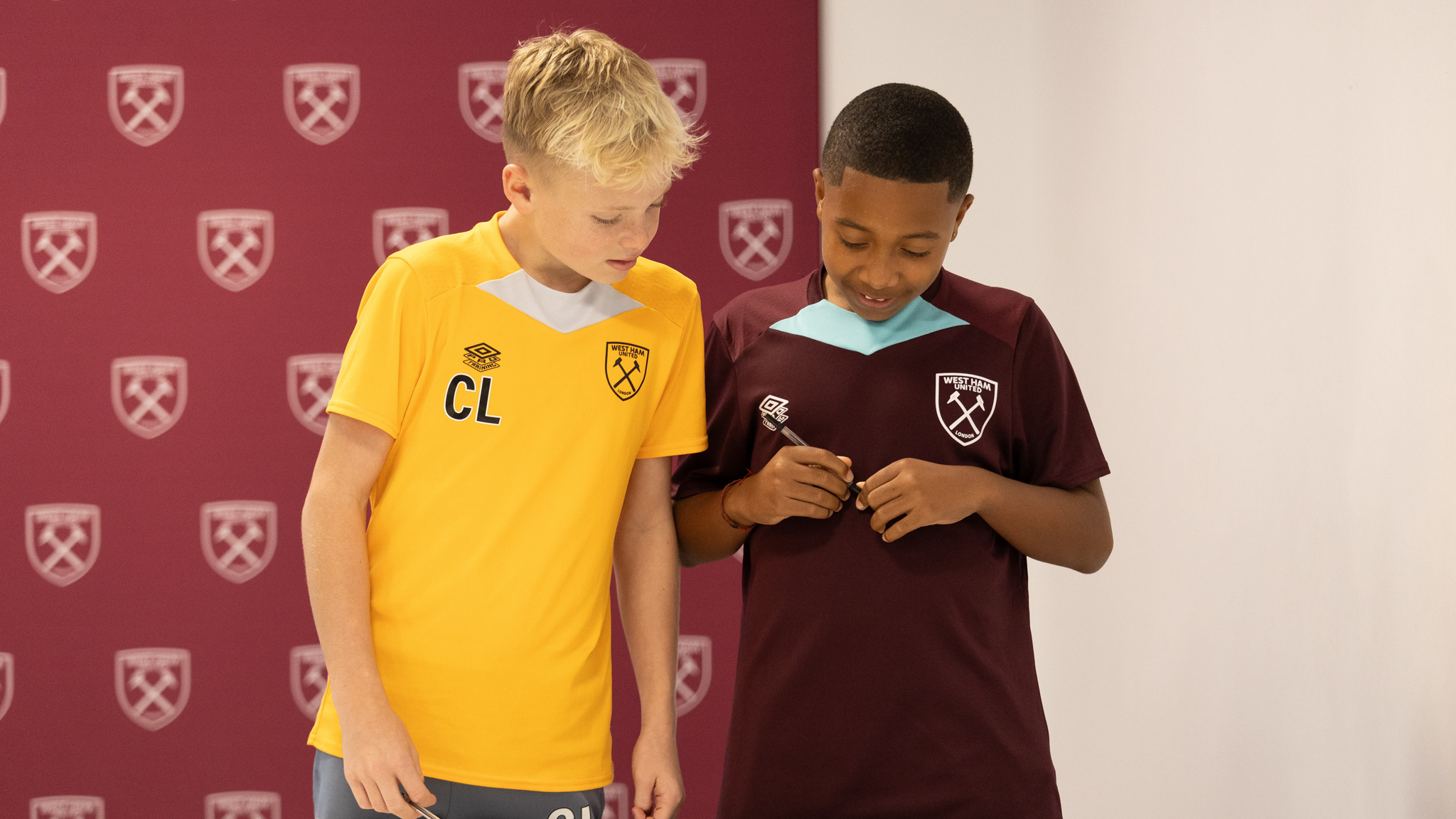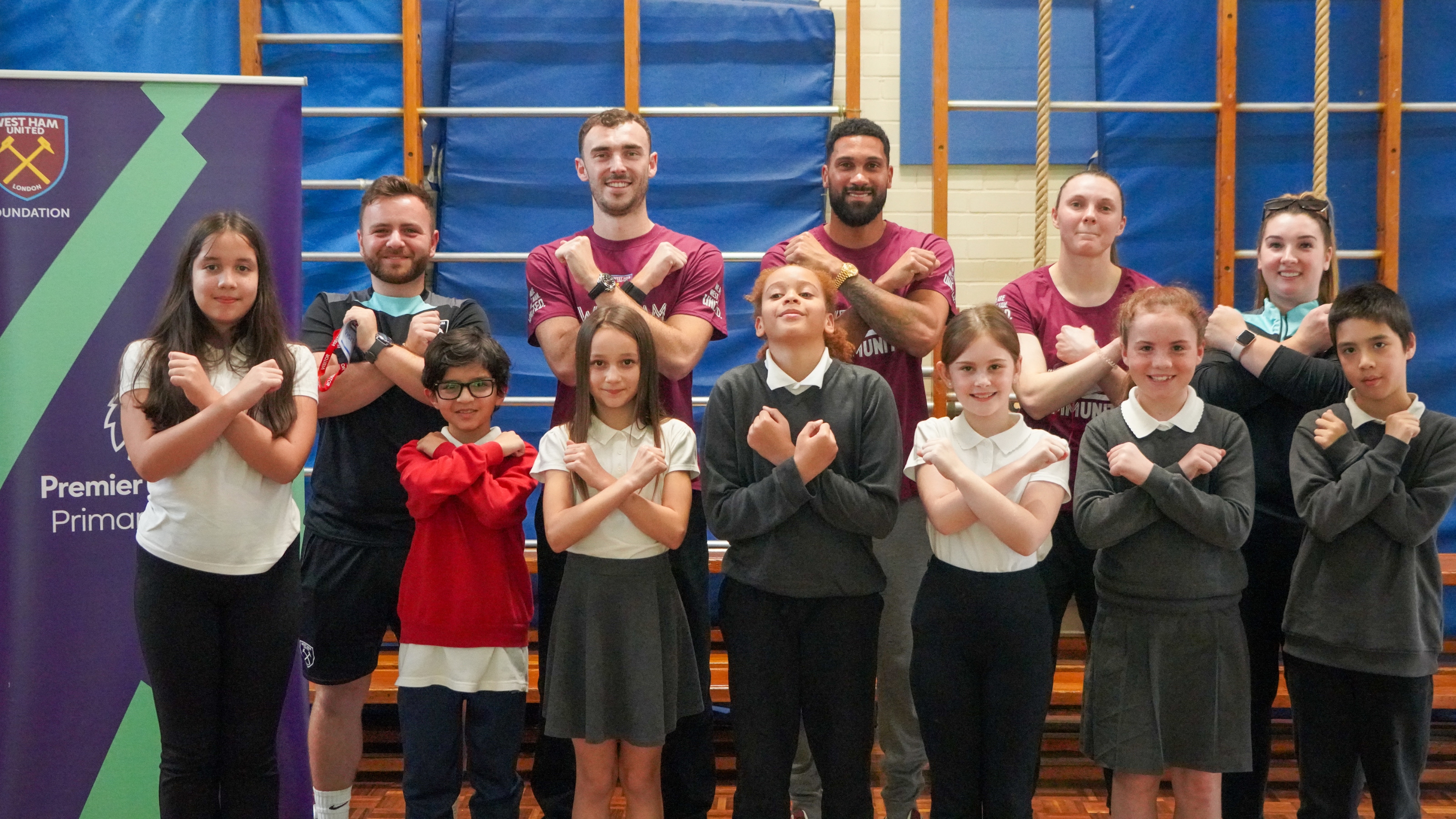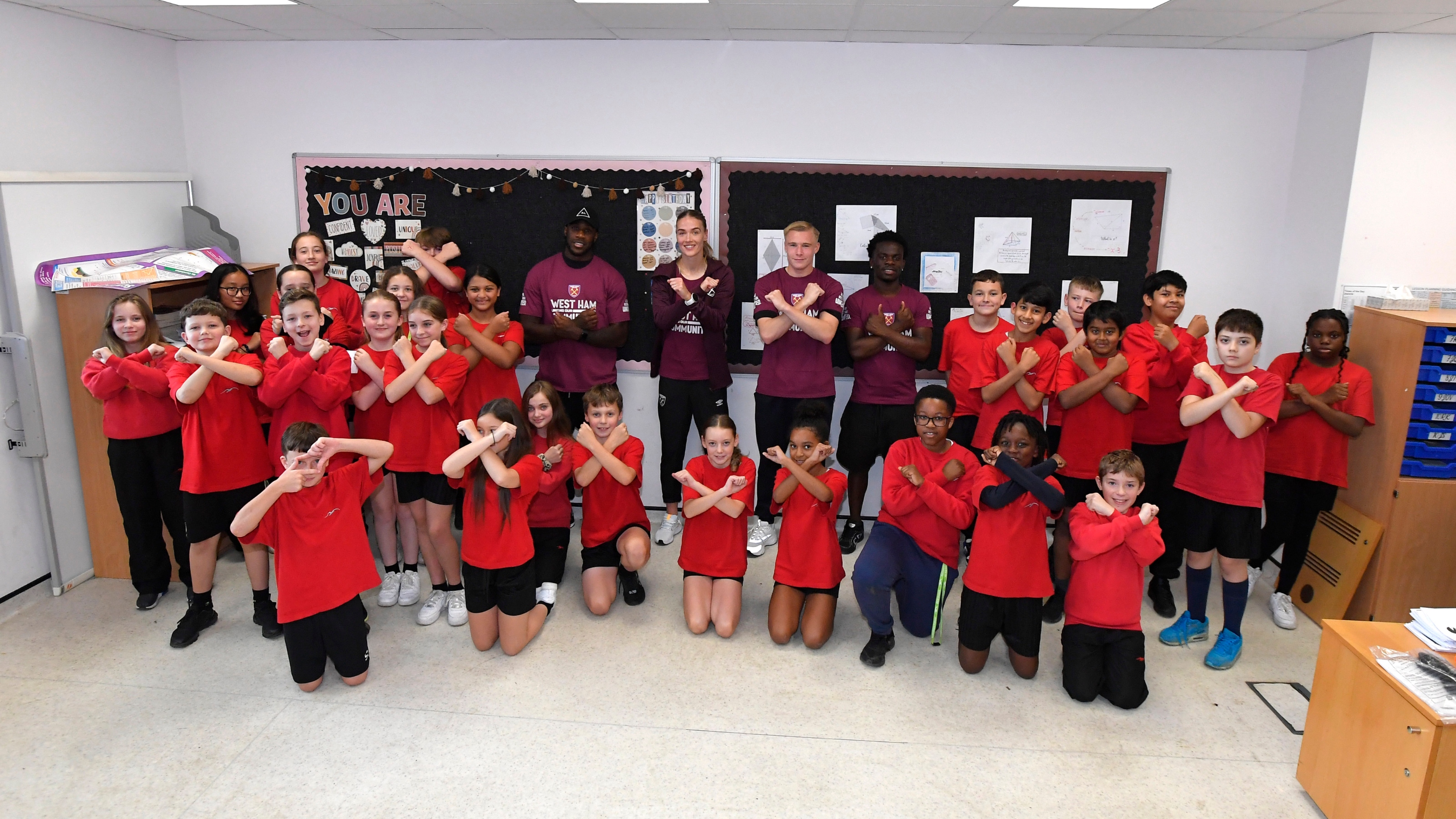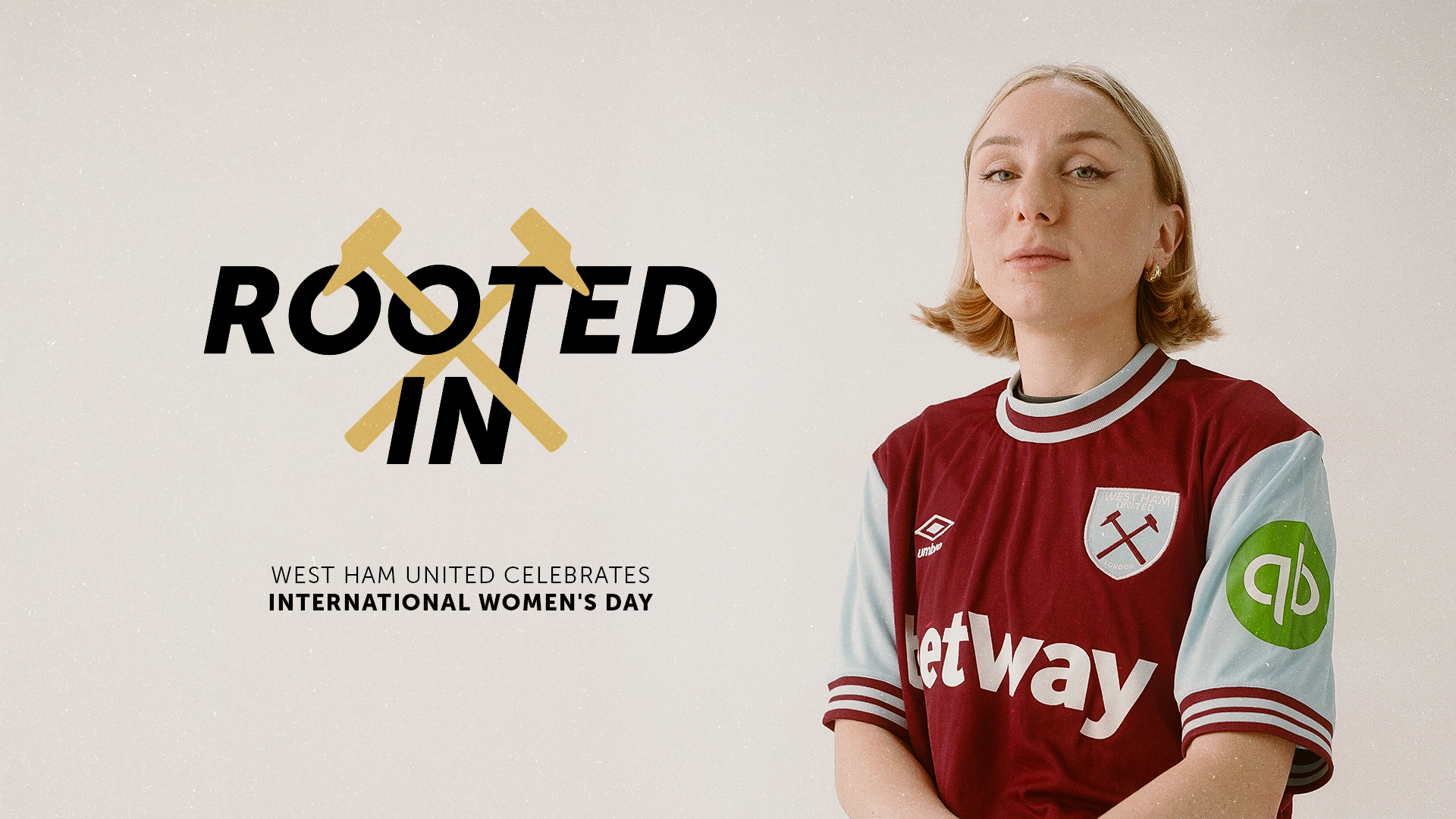Throughout October 2024, West Ham United will mark Black History Month by celebrating talented and young Black creatives in our local community and reclaiming the narratives by shining a light on the untold stories.
Over the course of the month, we’ll profile key voices from the West Ham family and beyond – including award-winning music producers, media leaders, podcast hosts and photographers.
By highlighting these individuals, we aim to share their often untold success stories, encouraging us to learn, share, discuss and celebrate their journeys, gaining a fresh perspective on the contributions of Black British people in our sphere.
First up is Johnny Kay, who is the Chief Commercial Officer at Versus, a community championing the future of football and its impact on culture and society, having been at the title since 2019. Kay previously worked at The Guardian, Boiler Room, and managed Mercury Prize and MOBO Award nominated musician, Novelist, between 2021 and 2023.
Having left music management behind, Johnny continues to offer music strategy and activation consultancy to both emerging and established artists and is on the BRIT Awards voting committee.
With West Ham, Johnny travels home and away, working with the Club to produce our Fans on Film photography Instagram series. He has also worked with the Hammers in a presenter context, hosting the interview with Crysencio Summerville when he joined this summer from Leeds United.
The conversation naturally began with a focus on life, and Johnny opened up on his upbringing in the south London neighbourhood of Battersea and revealed where his love affair for West Ham sparked from.
“I'm actually from south London originally,” said Kay. "I'm a first-generation West Ham fan. Me and my younger brother were the first in our family to support West Ham because my best mate at school supported the Club, so when he offered us the chance to actually go to a match, it was West Ham, and from the moment I stepped inside Upton Park, I fell in love.
“West Ham means everything to me, and going to my first-ever match is the most defining thing I’ve ever done. I work in football now, and that's because of the love I've got for West Ham, while I also have two West Ham tattoos. I think there's something really beautiful about football in that you just can't control it. In all other parts of life, we all want it to be our way. I support West Ham, and you know you’re not going to get your way. You just turn up regardless. Twenty years on from my first game, I still go with the same people I did at the beginning and now go to more or less every game.
“My first game was a pre-season friendly at Upton Park. I can’t remember who we actually played, but walking out onto Green Street from Upton Park Station was just a crazy thing, and for those of us that were lucky enough to do it, it just could never be replicated, and it was the beauty of having a football ground in such a diverse, multicultural area that was so alive on matchday and walking down to the ground for the first time ever and seeing the two castle turrets lives along in the memory.”
Johnny shared his experiences of being a Black West Ham supporter, expressing the importance of having plenty of Black role models in all areas of football.
And he was full of praise for a handful of former Hammers players who inspired him and played a role in West Ham becoming such a diverse club.
“My experience has been a real mixed bag," he confirmed. “Growing up as like a Black or mixed-race kid, my experience was that I was aware that racism as a thing existed, but I never really thought that it applied to me. But as I got older, I started to realise that it was quite a naive view, especially when it came to football. When I started following West Ham, it felt safe initially, and then as we got older, you started to hear things. I was a teenager when two West Ham fans racially abused Ashley Cole at Stamford Bridge, and I started crying, walked out of the ground, called my mum and said I'm never going to football ever again.
“On the front page of BBC Sport the next day, two fans were arrested for racism, and I felt quite uneasy about that. I think the thing about football that's weird is that every team has Black heroes; in that era, you're thinking about Carlton Cole, Jermain Defoe, Frédéric Piquionne and Nigel Reo-Coker. We love them on our team, but then there were supporters that, when it came to opposition players, would say stuff, and I’d stand there and feel so confused.
"I think the thing that was always hard was that even my close friends that were white wouldn't bat an eyelid at this stuff. When you look at the people that they're talking about and it looks like your uncle, your cousin, your brother, your mum, or your dad, it hurts. There’s a lot of conversation out there, such as how much did the murder of George Floyd and Black Lives Matter really do when it comes to racism and anti-racism, but my experience of going to football is that, since that period of time, it's extremely rare now that at a West Ham game I hear any sort of racism.
“Racism opened up conversation for the first time ever in my friend group, especially amongst my friends at West Ham, and it made them ask questions. The initial question was, surely, you've never experienced anything? There were a lot of hard conversations. I think the big change is what happened over that period of time; it opened people's eyes and ears to the fact that maybe their experience isn't the same as everyone else's.
"We've had quite a few fairly infamous Black supporters in our fan culture, and I think that has always really helped, and when I talk to the experiences of my friends that support other clubs, I think that the proper hostility amongst their own fans has never really existed in the time I've watched West Ham. Within the West Ham community, I have always felt loved and accepted, and it has always been that if you're one of us, you're one of us.
“Role models are one of the most important things. My real drive to get up and do what I do every day is to show kids like me that you can do it, and it's what Versus is all about, uplifting marginalised voices and creating a space for young, Black, Brown boys and girls to be able to work in football. I think the thing that moves me the most is that at least once a week someone reaches out and says seeing someone like you doing what you're doing has inspired me.
"In football media and the football industry, there aren't many Black role models. People like Leon Mann and Ian Wright are now accepted for being themselves, and I think Daniel Sturridge and Micah Richards are the new wave of that, of turning up authentically as yourself, as your Black self, and that being alright.”
At West Ham United, we are proud to be based in one of the most multicultural areas of the country, where equality, diversity, and inclusion are at the heart of everything we do.
Kay believes West Ham can continue to lead the fight and has praised the Club’s continued commitment to celebrating culture.
He continued: “It's really important because the thing about the surrounding area in which the Club is situated is that it's incredibly multicultural, and so is our support base. I think the Club did have challenges that, for a long time, the perception of who the Club was for was quite set, which was, for an outsider, a 40-year-old, bald member of the ICF, but we've got loads of Black and Asian fans because of the area the Club is in.
"What's been really nice is seeing a new generation of West Ham fans showing they’re from the area, support West Ham, and are doing all these interesting things in cultural lanes, and the Club is actually really leaning into that. It makes a huge difference. I think that since we've moved to London Stadium, the thing that's been really positive is the increase in capacity has allowed a much more mixed group of fans to go to the games, and it's way more normal to see lads that you can look at and tell they're not from the area, but they feel comfortable to turn up at the Club now in a way that maybe in my childhood they may not have, because the truth was, when we were at Upton Park, it was rare to see Black and Brown faces.
“Football is changing, and I think football clubs in particular are quite slow on the uptake. I think that West Ham is making really positive steps forward, but there is a new generation of football fans who are as interested in individual stories as much as team stories and are really interested in how football is becoming like a broader force for good and how football can be used as a vehicle to make positive change.
"When you look north of the river at a team like Arsenal, a team has really lent into their diverse set of fans and have acted as a magnet for fans from diverse audiences, and there's no reason why West Ham can't be the same, especially with the Stadium being situated in Stratford. We should be a magnet for young fans from the area who are into a life-changing place of football.”
Johnny has also worked with the Club to produce our Fans on Film photography Instagram series, while also hosting the interview with Summerville earlier this summer. To work for the Club that he supports is something he could have never dreamed about.
“I could literally die today, and if there’s an afterlife, then I would say it was all worth it because I’ve done those things," he beamed. “That’s how much it means to me. For the signing of Crysencio [Summerville], to be at the Club for a period of days when Niclas Füllkrug and Guido Rodríguez also signed was just unbelievable. I had the Club tracksuit on, and these players assumed I worked for the Club when, in fact, I’m just a random West Ham fan living my dream. Also, to be able to go to away games and take pictures for the Club is something I’m very grateful for.
“It’s really special, because there is something special about going to away games, as there’s a real core of fanaticism. People believe if you want to have the real football experience then you have to go to an away game, but unfortunately, due to travel, finances, and the availability of tickets, not everyone can do that, so to be able to give that second hand experience to people who can’t make it is really nice.
“I got my first Season Ticket when I was 17, which was in 2010. I was actually living in Birmingham when I got my first Season Ticket at Upton Park and would travel myself initially before bringing my mates from school on the train with me. The Championship was amazing; that was during my first year at university, and I think I went to 40 out of the 46 games that season. I went absolutely everywhere, and that’s when I really got the bug for following West Ham. That season finished with us getting promoted through that Ricardo Vaz Tê goal; it was a special year. The [UEFA Europa] Conference League final also lives long in the memory.
“I’m very proud of where I am at the moment, but it came through a lot of luck and help. I got a lucky break working at music platform Boiler Room, and I think they were more impressed with my passion for the brand than anything else, as I didn’t quite have the experience to work there. I got made redundant after a year and thought it was the worst thing ever, but the guys at Versus got in touch and said they were looking for someone else to come in and make it a proper business, and that’s what we’ve done.
“I think we had around 30,000 followers when I started, and we’ve now grown it to 330,000 followers on Instagram, have 600,000 followers on TikTok, and make millions of pounds per year in revenue. It’s been the success story of my career, but we’re nowhere near done. The best thing is to be part of a driving force that is changing football as it is going through that change where it is becoming more culturally progressive, and players do feel more comfortable speaking about social issues and doing collaborations with fashion brands.
“I did not think that working in football was possible growing up, and it wasn’t something I even considered for one second, even when I got my West Ham Season Ticket and was going to every game. I’ve luckily grown up in a time when there’s been a change in football and different opportunities have started to emerge, and there’s now this entirely different creative industry within football that just didn’t exist five years ago.”
